8 HOA Fundraising Ideas For Extra Income
Homeowners associations often rely on HOA fees as their main source of income. However, delinquencies and economic downturns can often make HOAs unstable or unable to make ends meet with just HOA fees. How can HOAs remain financially healthy despite economic hardships? The answer: through HOA fundraising activities.
HOA Fundraising Ideas for a Financially Healthy Community
Homeowners associations have many options to get extra cash to cover their expenses. They can raise HOA fees, levy special assessments, or obtain an HOA loan to cover the costs. However, while these strategies may be helpful, they are not always feasible or acceptable for the community residents.
What can the board do, then? One good idea is to raise the community’s income by hosting HOA community fundraisers. Here are some ideas HOAs can consider.
1. Culinary Events
HOA fundraising programs do not have to be boring or burdensome for the residents. They can even serve as community bonding activities. One good idea is to host culinary events like potlucks and cookoffs in the spring or fall.
In a cookoff, homeowners can register as chefs or attendees to taste the meals prepared. The HOA can charge the chefs to register and charge the attendees upon entry. During the event, people from all over the neighborhood — or even those outside the HOA — can come and taste food from various home cooks.
Meanwhile, the cooks and chefs can even sell some of their dishes to the participants. It’s a win-win because both the chefs and the HOA can raise funds. The HOA can even invite bands, food stalls, and other outside vendors to the event for more proceeds.
If the HOA is strict about outside visitors, they can also throw a potluck. Residents can bring a dish of their choice and pay a small fee to enter. Those who want to attend without bringing a dish can pay a higher entry fee.
2. Amenity Rentals
 Many HOAs provide amenities like parks, gyms, pools, and co-working centers. Consider renting these out as part of HOA fundraising. The money HOAs can make from renting them out can be significant, especially if the amenities are nice or the HOA is in an area with high demand.
Many HOAs provide amenities like parks, gyms, pools, and co-working centers. Consider renting these out as part of HOA fundraising. The money HOAs can make from renting them out can be significant, especially if the amenities are nice or the HOA is in an area with high demand.
In addition, HOAs can host events in these amenities like camps and courses. For instance, they can invite schools to host a camp in the community park and clubhouse. If there are no schools in the area, the HOA can host an adult learning program like a gardening or cooking class.
Alternatively, HOAs can rent out the clubhouse for small events like birthday parties or class reunions. Consider advertising the space in local newspapers or social media.
3. Game Nights
HOAs can host game nights and charge a small entry fee. For example, the board can host bingo, poker, or board game nights every Thursday for the community residents. These games are fairly low-maintenance and can bring a lot of income, especially if they’re hosted every week.
However, make sure to check state law before hosting anything gambling-related. State laws may vary when it comes to gambling regulations. For instance, Flordia law allows penny-ante games wherein winnings for each round do not exceed $10. However, a person cannot receive commissions for conducting the game in their dwelling.
4. Festivals
HOA festivals are fun and lively events that invite people from all around the area to the community. The board can invite food vendors, game stalls, and local craftsmen to the event. They can then sell their goods and services during the festival. Moreover, the festival can have a highlight event like a battle of the bands or a silent auction.
Hosting festivals is a great way to raise funds while also supporting local artists, craftsmen, and businesses. The HOA can even prioritize residents who want to participate. It also fosters a better sense of community for the residents living there.
5. Sporting Events
Athletic activities are a great way to bring the community together while also raising some funds on the side. Consider hosting a sporting event where residents can participate in various sports for a small fee. The event can include sports like basketball, tennis, badminton, and even marathons or walk-a-thons. HOAs can also invite other vendors, like food or drink vendors, to raise more funds.
In addition, the HOA can incorporate other ways to raise money during the event. They can host a text-to-give donation event where residents and participants can donate what they can from their phones. Raffles are also a good way to convince participants to stay until the end of the event, thus driving more traffic and sales. Participants can purchase a raffle ticket for a chance to win a good prize.
6. Online Shopping
HOA fundraisers don’t always have to be physical. In fact, an online shopping fundraiser can sometimes be enough to cover additional expenses. The HOA only needs to partner with an online platform where people can purchase goods and services. Retailers can join in and post their listings and products through the platform. The HOA then gets a cut from every purchase made on the website.
7. Converting Unused Parking Lots and Buildings
 Some HOAs may have unused parking lots or buildings that they can convert into a profitable business. For instance, if there’s a lot of unused land in the area, consider converting it into a pay-parking space. Outsiders (or even the residents’ guests) can pay for parking. It’s a good idea if the HOA is near any commercial establishments or offices.
Some HOAs may have unused parking lots or buildings that they can convert into a profitable business. For instance, if there’s a lot of unused land in the area, consider converting it into a pay-parking space. Outsiders (or even the residents’ guests) can pay for parking. It’s a good idea if the HOA is near any commercial establishments or offices.
Meanwhile, empty buildings can be converted into storage units used by the community residents. It’s a great way to put the building into good use without too much preparation or overhead.
8. Install Vending Machines
Vending machines can make the HOA a decent amount of extra income without breaking the bank. The community only needs to install them at convenient, high-traffic spots near the gyms, pools, or clubhouses. Vendors are often more than willing to pay a fee to use these spaces.
The HOA can also purchase vending machines and manage them in-house. They can cost anywhere between $1,200 to $10,000, depending on the model. The board should conduct a cost-benefit analysis to ensure they purchase the right one.
Prioritizing Financial Stability
At times, HOAs cannot rely on fees and assessments alone. Homeowners associations can host HOA fundraising events to ensure financial stability. It’s especially useful during economic downturns or when there are a lot of delinquencies in the community.
Condo Manager is an all-around HOA management software for both HOA management companies and self-managed neighborhoods. Call us today at (800) 626-1267 or get in touch with us online to request a demo!
RELATED ARTICLES:
- HOA Plumbing: What Is The HOA Responsible For?
- Can Homeowners Get Speeding Tickets In HOAs?
- HOA Audit: What Can It Say About Your HOA’s Financial Health?



 How do you account for reserve funds? After conducting a reserve study, the HOA may aim to maintain a certain percentage of the ideal reserve funds to remain healthy. Ideally, reserve accounts should be fully funded. However, maintaining a 70% funded reserve account should be a decent level to aim for if the community is underfunded.
How do you account for reserve funds? After conducting a reserve study, the HOA may aim to maintain a certain percentage of the ideal reserve funds to remain healthy. Ideally, reserve accounts should be fully funded. However, maintaining a 70% funded reserve account should be a decent level to aim for if the community is underfunded. HOA board members are not always legal or financial experts. They rarely have financial or legal backgrounds. Hence, they might not know why the reserves are important and how to manage the funds wisely. HOAS needs to educate the board members about proper reserve fund management.
HOA board members are not always legal or financial experts. They rarely have financial or legal backgrounds. Hence, they might not know why the reserves are important and how to manage the funds wisely. HOAS needs to educate the board members about proper reserve fund management.
 Can HOAs Still Sell Homes?
Can HOAs Still Sell Homes? 4. Create a Financial Plan
4. Create a Financial Plan
 First of all, recessions usually see an increase in
First of all, recessions usually see an increase in  The first thing any association should do is review its finances. This will allow the board to understand the financial health of the community. Check the association’s bank accounts, reserve funds, and upcoming expenses. Evaluate which expenses or forthcoming projects are essential and which ones are not. Non-urgent costs might need to take a back seat while the economy — and the homeowners — recover.
The first thing any association should do is review its finances. This will allow the board to understand the financial health of the community. Check the association’s bank accounts, reserve funds, and upcoming expenses. Evaluate which expenses or forthcoming projects are essential and which ones are not. Non-urgent costs might need to take a back seat while the economy — and the homeowners — recover. 5. Seek Help
5. Seek Help
 While they may sound like they offer the same things, a financial review and an audit are two different things. A financial review examines the financial records of an association and provides a report that the board can use to make short-term financial decisions.
While they may sound like they offer the same things, a financial review and an audit are two different things. A financial review examines the financial records of an association and provides a report that the board can use to make short-term financial decisions.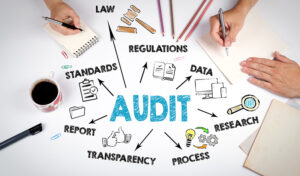 On average, audits can cost anywhere between $4,000 to $6,000. Given the complexity of a financial audit, though, such a price is understandable. Audits are time-consuming and labor-intensive, but their results are well worth the investment.
On average, audits can cost anywhere between $4,000 to $6,000. Given the complexity of a financial audit, though, such a price is understandable. Audits are time-consuming and labor-intensive, but their results are well worth the investment.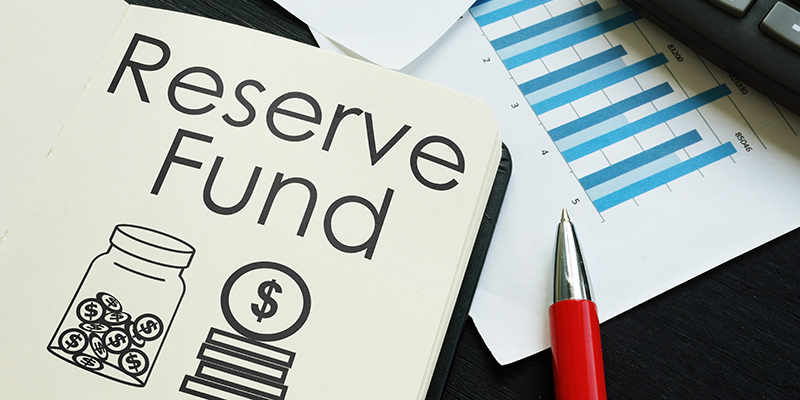
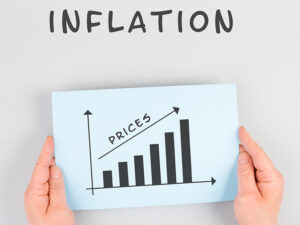 When talking about an HOA’s reserves, one question that always seems to pop up is exactly how much to put in the fund.
When talking about an HOA’s reserves, one question that always seems to pop up is exactly how much to put in the fund. Because the money in an HOA’s reserve account tends to sit untouched for long periods of time, many boards consider the possibility of investing the funds. The board generally has the authority to do this, though it is still worth checking state laws and the association’s governing documents.
Because the money in an HOA’s reserve account tends to sit untouched for long periods of time, many boards consider the possibility of investing the funds. The board generally has the authority to do this, though it is still worth checking state laws and the association’s governing documents.
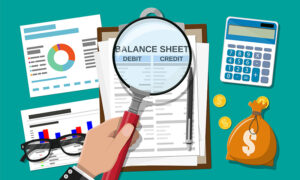 The
The 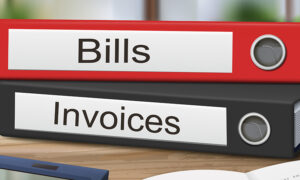 The accounts receivable report tells boards and owners how much is owed to the association. It is a summary of all the money the association expects to receive. It could include dues from homeowners, rental income from a facility, etc. This could also come in the form of an aging report, which shows how long each account has remained unpaid.
The accounts receivable report tells boards and owners how much is owed to the association. It is a summary of all the money the association expects to receive. It could include dues from homeowners, rental income from a facility, etc. This could also come in the form of an aging report, which shows how long each account has remained unpaid.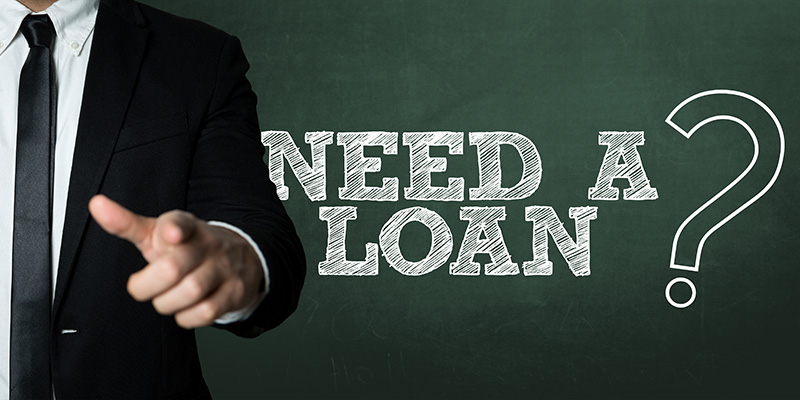
 One of the most common reasons for taking out a loan is for financing HOA projects or repairs. These could be capital improvement projects that have been long in the making or repairs due to unexpected or emergency situations.
One of the most common reasons for taking out a loan is for financing HOA projects or repairs. These could be capital improvement projects that have been long in the making or repairs due to unexpected or emergency situations. This type of HOA loan is the same as a standard term loan, but with a shorter-term period. These loans can last from 3 to 10 years.
This type of HOA loan is the same as a standard term loan, but with a shorter-term period. These loans can last from 3 to 10 years. The
The 
 Kickbacks are payments or gifts that a vendor gives to a board member in exchange for hiring their company. It is also HOA fraud when a board member receives a portion of the contract money.
Kickbacks are payments or gifts that a vendor gives to a board member in exchange for hiring their company. It is also HOA fraud when a board member receives a portion of the contract money. HOAs should be suspicious if a board member is pushing for a new, more expensive vendor even if the current one has been providing quality service. He or she may be receiving a kickback in exchange for the vendor contract.
HOAs should be suspicious if a board member is pushing for a new, more expensive vendor even if the current one has been providing quality service. He or she may be receiving a kickback in exchange for the vendor contract. Most HOAs don’t know that there has been fraud or embezzlement until it’s too late. By then, your association may have already lost a large sum of money. It could take years to recover these stolen funds — if they can be recovered at all.
Most HOAs don’t know that there has been fraud or embezzlement until it’s too late. By then, your association may have already lost a large sum of money. It could take years to recover these stolen funds — if they can be recovered at all.
